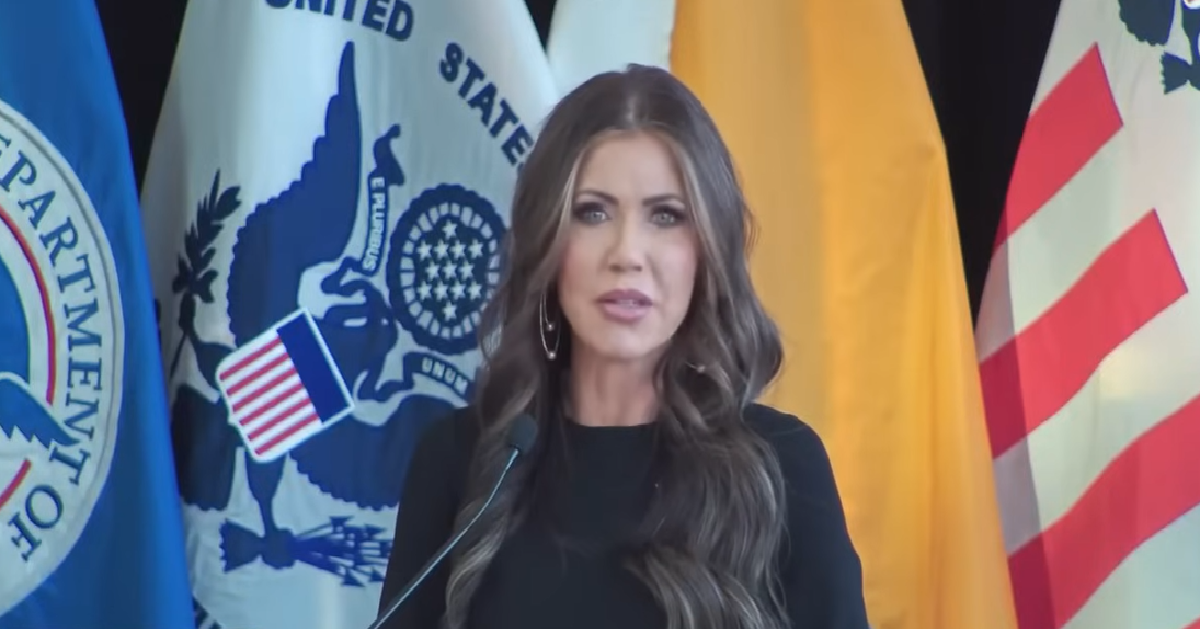DANIEL VAUGHAN: Trump Holds All The Shutdown Cards
The politics of a government shutdown remain brutal for Democrats. They have no experience on this end of the stick. The last shutdown led by Chuck Schumer barely lasted a few days. The dynamics hurt because Democrats care about the federal government, whereas the average Republican is fine if everyone is fired.
That dynamic is about to get tested as Democrats are forced to contend with how long they want this shutdown to last. The radical elements of the Democratic Party want to go the distance. Here's the problem: they're the only ones who want that. Three Democratic Senators have already bolted to vote with Republicans.
There is no pressure on Republicans in this shutdown. The swing-state Republicans can gleefully vote for the end of the shutdown, while claiming they're working across the aisle to broker a deal. Republicans in red states get to stick it to Democrats. There's no pressure on anyone in the Republican coalition.
Even worse for Democrats, Trump can twist the knife into the administrative state, and Republican voters are going to cheer. Democrats are mad at this last point, but the more Trump threatens mass firings, furloughs, and worse, the more he will face no blowback from his base.
Democrats are the ones blocking any funding at this stage, demanding Republicans step in to fix the Affordable Care Act, aka Obamacare. After telling everyone they'd fixed healthcare with Obamacare, Democrats claim that unless we subsidize the boondoggle, no one will be able to afford it.
The argument is absurd on its face to any conservative. I understand why moderates jump at the opportunity to offer subsidies to help constituents. But all we're doing is throwing duct tape on a lemon of a car that Democrats sold as the luxury brand everyone needs. Democratic healthcare fixes are like a Ford vehicle: big sales, but you'll be back in the shop every few months with some new recall. It's a disaster on every level.
Republicans may vote to help those subsidies through, but it's pretty clear to everyone involved that's a December request, not an October one. Why? It's a difference of being past the off-year elections and new members of Congress getting sworn in.
That brings us back to the timeline. Democrats have no real ask on this shutdown. This is a temper tantrum from the base, and Chuck Schumer is trying to show "he fights." But what happens when he's forced to cave?
Because that's where we're headed. During the first week, when no paychecks arrive, most government employees can survive. What about during the second week? That's a little harder. Federal employees are numerous in places like Virginia, one of the off-year election states.
Do Democrats want to continue voting against reopening the government, as their base, federal employees, feel a larger pinch? And then there's the really bad scenario: three weeks. At that stage, most people have to start making major payments in their lives, such as rent, mortgage, credit card bills, car payments, and the rest.
What then? It's not as if Democrats are focused on issues like inflation, where things are becoming more expensive. How long do they expect their federal employee base to hold out while they demand a shutdown with few clear demands?
I raise these points because the shutdown is easy right now. The press doesn't want to put pressure on Democrats; the Yom Kippur holiday provided a helpful respite with no votes, but that's coming to an end. What happens if Wall Street sours on this ploy from the left, with Democratic voters being forced to eat the bulk of the burden of this shutdown?
Remember, Republicans face no pressure on this shutdown. If anything, Trump is incentivized to crank the heat up on Democrats. What happens when Democratic politicians cave?
Many people have likened this shutdown to the 2013 Republican shutdown, led by Ted Cruz, which was aimed at opposing Obamacare. Republicans had no leverage in that situation, and did the same thing as Democrats are doing now. Republicans got nothing for that in 2013, and a few years later, the base turned to Donald J. Trump for President.
Who will Democrats turn to after this, if they view Democratic politicians the same way Republican voters viewed their leadership after the 2013 election? If Democrats look elsewhere, I wouldn't want to be someone like Kamala Harris or Gavin Newsom, who bear the weight of this moment and the failures of the Biden administration. If you think that's unfair to those two, realize that both Ted Cruz and Marco Rubio, stars of 2013, lost to Trump.
We don't know the answers to these questions and many others. But what we do know is this: Democrats ran headfirst into a prime ambush point for Republicans to spend all their time taking potshots. There's no exit. The only way out is the way they entered: accepting the clean spending bill and moving on.
Meanwhile, Republicans will roll with whatever Trump decides to shut down next.






